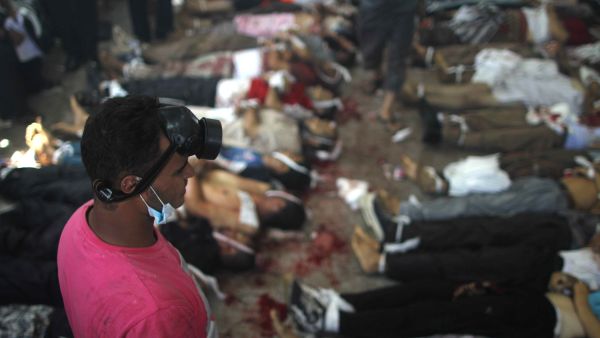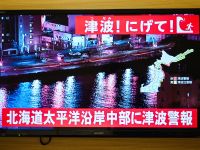Egypt’s Health Ministry said on Wednesday that 278 people, including 43 security forces, were killed in nationwide violence that began when police moved in early in the morning to break up protest camps that were set up by supporters of ousted President Mohammad Mursi.
The ministry said at least 30 were killed in Menoufia, 15 in Ismailia and more than 10 in Alexandria. It said more than 1,400 people were injured countrywide.
Egyptian security officials told AFP that calm had returned to the country Wednesday night after a day of deadly clashes. After the declaration of a curfew “all areas of the country are now calm,” one of the officials said.
Security forces succeeded in taking full control over the squares of Ennahda and Rabaa al-Adawiya by the evening.
Hundreds of Mursi loyalists left the main vigil of Rabaa al-Adawiya after the security forces gave them a safe passage. Al Arabiya’s correspondent in Cairo said clashes between security forces and protesters in Rabaa al-Adawiya had erupted early on in the swoop.
Earlier on Wednesday, an AFP correspondent counted 43 bodies at a makeshift morgue at Rabaa al-Adawiya and said that many appeared to have died from gunshot wounds. There were no women or children among the dead, the correspondent said.
Security forces fired tear gas into the sit-ins and live images of Rabaa al-Adawiya showed smoke billowing from the square and military helicopters flying overhead.
Egypt’s interior minister pledged to restore the kind of security seen in the days of ousted President Hosni Mubarak, a sign of renewed confidence permeating a police force whose reputation for brutality fuelled the 2011 uprising.
Mohammad Ibrahim said that thousands of arms were seized in the pro-Mursi camps and warned that Egypt will not allow any more protest camps and warned that forces would deal firmly with protesters who were acting “irresponsibly.”
The pro-Mursi Anti-Coup alliance has claimed that security forces used live ammunition, but the minister said his forces only used tear gas and that they came under fire from the camp.
Interim Hazem al-Beblawi defended the government’s decision to use force to break up pro-Mursi sit-ins, saying authorities had no choice but to act.
Beblawi praised police for their “self-restraint” and said that the country remains committed to an army-drafted roadmap which calls for elections in 2014.
He added that the decision to break up the protests “was not easy” and came only after the government had given mediation efforts a chance before acting on the difficult situation.
“We found that matters had reached a point that no self-respecting state could accept,” Beblawi said, citing what he describes as “the spread of anarchy and attacks on hospitals and police stations.








